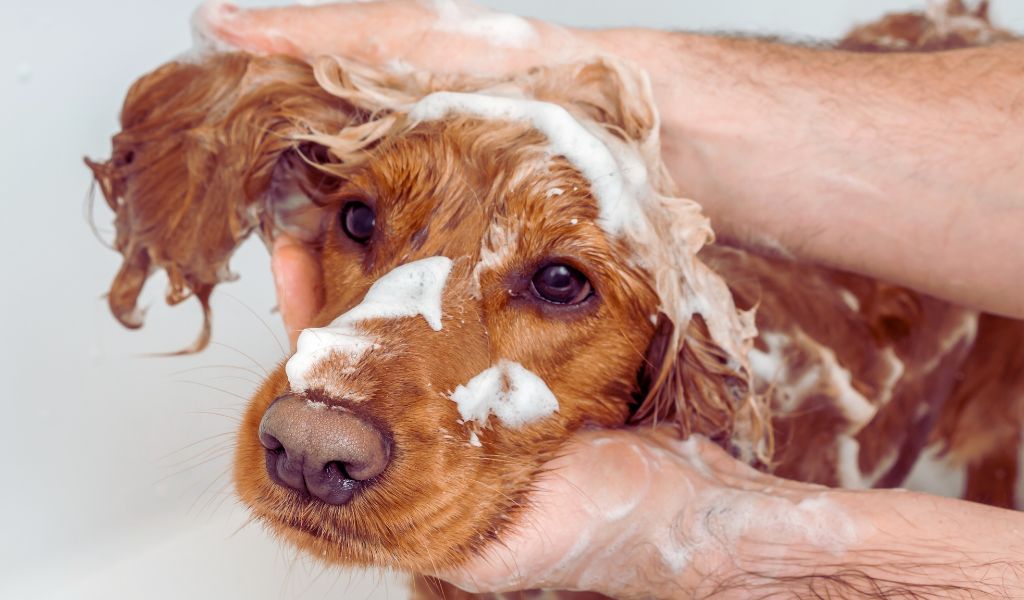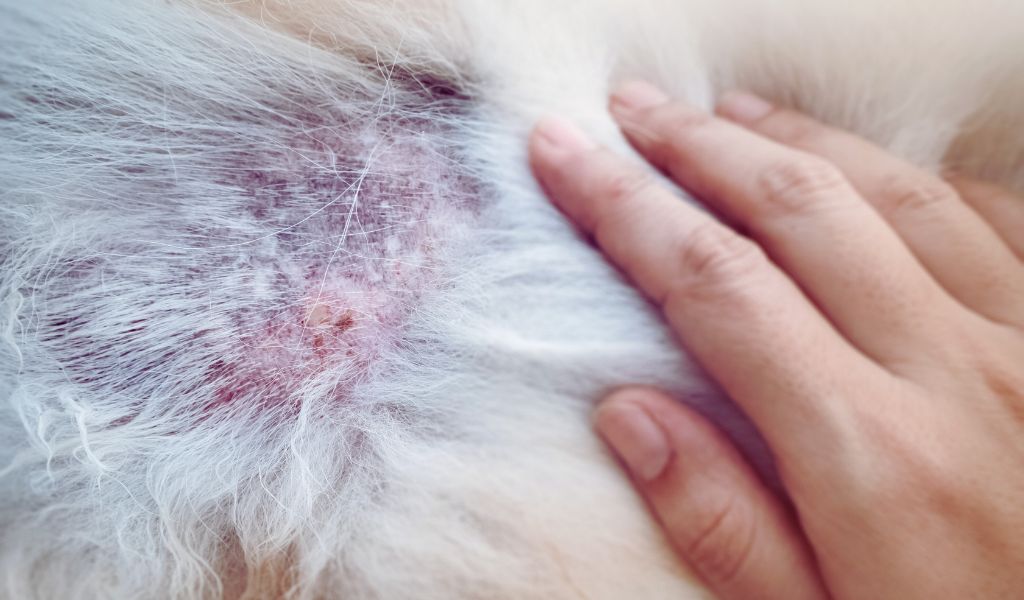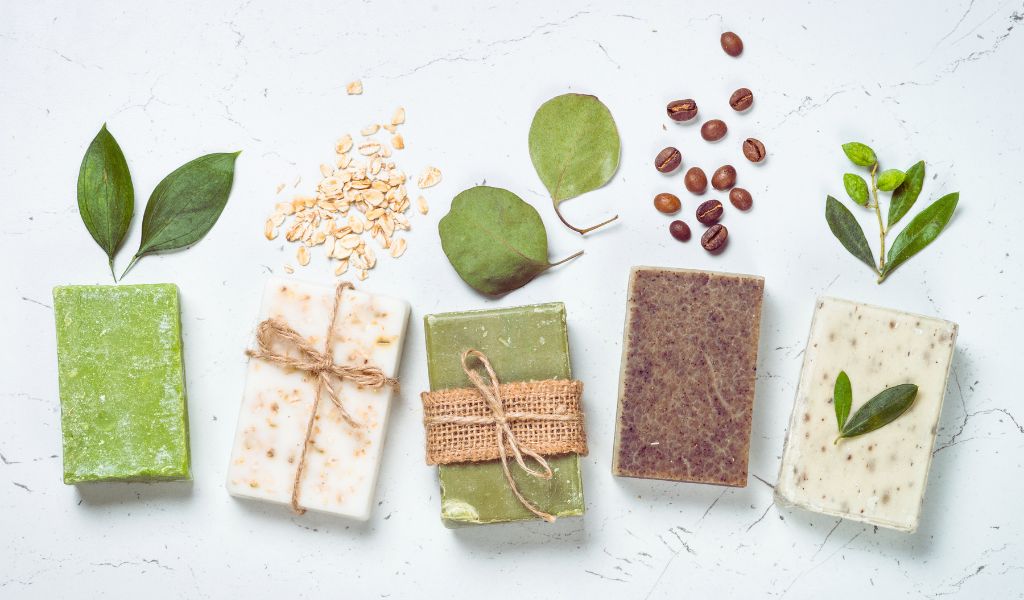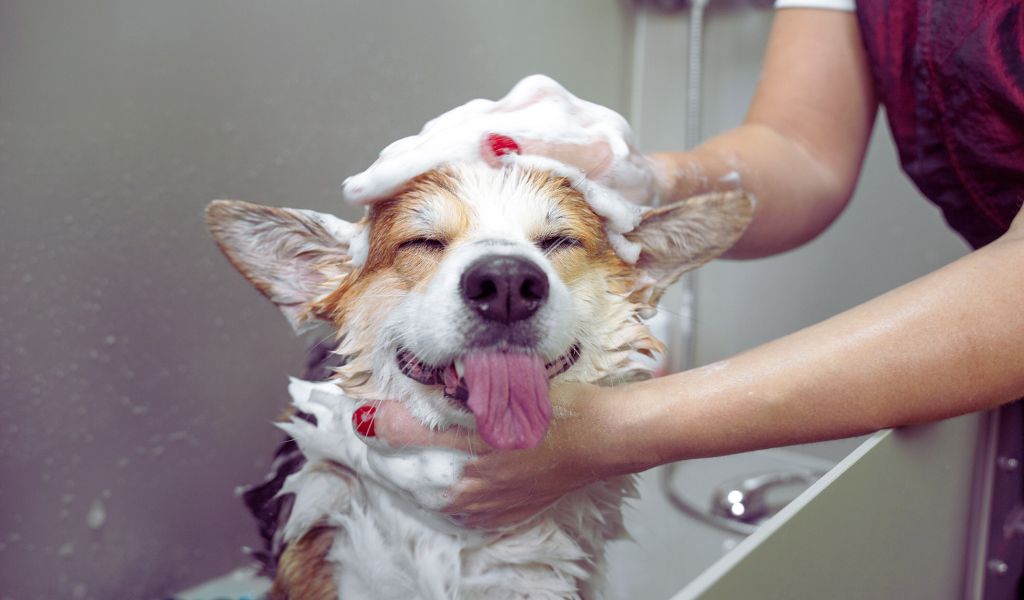As a dog owner, ensuring the health and well-being of your pet is a top priority. One question that often arises is whether it is safe to use human shampoo on dogs.
This article delves into this topic, exploring the potential risks, benefits, and alternatives to help you make an informed decision.
While using human shampoo on your dog once in an emergency is unlikely to cause significant harm, it is not recommended. Human shampoos can disrupt the pH balance of a dog’s skin, leading to dryness and irritation. It’s best to use a dog-specific shampoo whenever possible.
Why the Question Arises
Many pet owners find themselves in a situation where they run out of dog shampoo and wonder if using their own shampoo is a suitable alternative.
Additionally, some might think that because both products clean hair, they must be interchangeable.
The Importance of Proper Dog Grooming
Proper grooming is essential for maintaining a dog’s health. It involves more than just keeping them clean, it includes regular brushing, nail trimming, and ensuring their skin and coat are healthy.
The products used in grooming play a crucial role in this process.
Composition of Human Shampoo vs. Dog Shampoo
Human Shampoo Ingredients
Human shampoos are formulated with specific ingredients designed to cater to human scalp and hair needs. These typically include:
- Surfactants: These are cleansing agents that help remove dirt and oil from the hair and scalp.
- Conditioners: Ingredients like silicones and oils that help to smooth and soften hair.
- Fragrances: Added to give a pleasant smell.
- pH Adjusters: To maintain the appropriate pH level for human scalp, which is around 5.5.
Dog Shampoo Ingredients
Dog shampoos, on the other hand, are formulated to suit canine skin and coat needs. They typically contain:
- Mild Cleansers: Suitable for a dog’s skin which is less oily than human skin.
- Conditioning Agents: To maintain coat health without causing dryness or irritation.
- Fragrances: Specifically formulated to be non-irritating for dogs.
- pH Adjusters: To match a dog’s skin pH, which is around 7.0 to 7.5.
pH Levels: Human vs. Dog Skin
The difference in pH levels between human and dog skin is significant.
Human skin has a pH of around 5.5, which is slightly acidic, while a dog’s skin has a more neutral pH of about 7.0 to 7.5.
Using a product designed for human skin on a dog can disrupt the natural balance of a dog’s skin, leading to dryness, irritation, and other skin issues.

Potential Risks of Using Human Shampoo on Dogs
Skin Irritation
Human shampoos can cause significant irritation to a dog’s skin.
The harsher chemicals and unsuitable pH levels can strip the natural oils from a dog’s coat, leading to dryness and itching.
Allergic Reactions
Dogs may have allergic reactions to certain ingredients commonly found in human shampoos.
These reactions can range from mild itching and redness to more severe symptoms like swelling and hives.
Dry Skin
Human shampoos can remove essential oils from a dog’s coat, leading to dry, flaky skin.
This can make the skin more susceptible to infections and other issues.

Long-term Effects
Repeated use of human shampoo on dogs can result in chronic skin conditions.
The consistent disruption of the natural pH balance and removal of oils can cause lasting damage to a dog’s skin and coat health.
Benefits of Using Dog-Specific Shampoos
Tailored Formulation
Dog shampoos are specifically formulated to cater to the unique needs of a dog’s skin and coat.
They are designed to clean without causing irritation or dryness.
Balanced pH
These shampoos are made to match the pH level of a dog’s skin, ensuring that the natural balance is maintained, which helps keep the skin healthy and free from irritation.
Added Nutrients
Many dog shampoos contain additional nutrients and ingredients that promote healthy skin and coat, such as oatmeal, aloe vera, and essential oils.
There are lots of dog specific shampoos available and one of my favourite choices is the Furminator range.
Alternative Solutions
Homemade Dog Shampoo
For those who prefer natural products, homemade dog shampoo can be a safe and effective alternative.
Common ingredients include:
- Oatmeal: Helps soothe and moisturize skin.
- Baking Soda: Acts as a natural deodorizer.
- Aloe Vera: Provides soothing properties.
- Apple Cider Vinegar: Balances skin pH and fights bacteria.

Homemade Dog Shampoo Recipe
Ingredients:
1 cup of water
1 cup of apple cider vinegar
1/4 cup of mild, unscented castile soap
1 tablespoon of aloe vera gel
1 tablespoon of coconut oil
Instructions:
Mix Ingredients: In a large bowl or container, combine the water, apple cider vinegar, castile soap, aloe vera gel, and coconut oil. Stir well until all ingredients are thoroughly mixed.
Transfer to a Bottle: Pour the mixture into a clean, empty bottle for easy storage and use.
Shampoo Your Dog: Wet your dog’s coat thoroughly with warm water. Apply the homemade shampoo, starting from the neck and working your way down to the tail. Massage gently to create a lather.
Rinse Well: Rinse your dog thoroughly with warm water to remove all the shampoo.
Dry and Brush: Dry your dog with a towel and brush their coat to keep it smooth and shiny.
This simple homemade dog shampoo is gentle on your dog’s skin and coat, while effectively cleaning and soothing.
Natural and Organic Dog Shampoos
Natural and organic dog shampoos are available that use gentle, plant-based ingredients. These can be a great option for dogs with sensitive skin or allergies.
In summary, while it might seem convenient to use human shampoo on your dog, it is not advisable due to the potential risks. Dog-specific shampoos are formulated to meet the unique needs of a dog’s skin and coat, ensuring they remain healthy and happy. Always opt for products designed for your pet to avoid unnecessary health issues.
What are the risks of using human shampoo on dogs?
The main risks include skin irritation, allergic reactions, and dry skin. Human shampoos are formulated for the pH level of human skin, which is different from that of dogs. This can strip away the natural oils from a dog’s coat, leading to various skin issues.
What should I do if I’ve used human shampoo on my dog and they have a reaction?
If your dog shows signs of irritation, such as excessive scratching, redness, or swelling, rinse their coat thoroughly with water to remove any remaining shampoo. Monitor their condition, and if symptoms persist or worsen, consult a veterinarian for advice.
Are there any human shampoos that are safe for dogs?
Generally, it’s best to avoid using any human shampoos on dogs. Some very mild, natural shampoos might be less harmful, but they still do not cater to a dog’s specific skin and coat needs. Always opt for a shampoo specifically designed for dogs.
How can I make homemade dog shampoo?
You can make a simple and effective homemade dog shampoo using ingredients such as oatmeal, baking soda, aloe vera, and apple cider vinegar. These ingredients help clean and soothe your dog’s skin without the harsh chemicals found in many human shampoos.
What are the benefits of using dog-specific shampoos?
Dog-specific shampoos are formulated to match the pH balance of a dog’s skin, ensuring they are gentle and non-irritating. They often contain additional nutrients and ingredients that promote healthy skin and a shiny coat, and are free from harsh chemicals that can cause dryness or allergies.
Can using the wrong shampoo cause long-term damage to my dog’s skin?
Yes, using the wrong shampoo repeatedly can cause long-term damage to your dog’s skin. This can include chronic dryness, irritation, and susceptibility to infections. Consistently disrupting the natural pH balance can lead to persistent skin problems.
What ingredients should I look for in a good dog shampoo?
Look for shampoos with natural ingredients like oatmeal, aloe vera, and essential oils. These ingredients are gentle and help to moisturize and soothe the skin. Avoid shampoos with artificial fragrances, sulfates, and parabens, as these can be harsh on a dog’s skin.
How often should I bathe my dog?
The frequency of bathing depends on your dog’s breed, coat type, and activity level. Generally, most dogs benefit from a bath every 4 to 6 weeks. However, dogs with oily coats may need more frequent baths, while those with dry or sensitive skin may require less frequent bathing.
What other grooming practices are important for my dog’s health?
Regular brushing, nail trimming, ear cleaning, and dental care are all important aspects of dog grooming. These practices help maintain your dog’s overall health and prevent issues such as matting, infections, and dental diseases.




